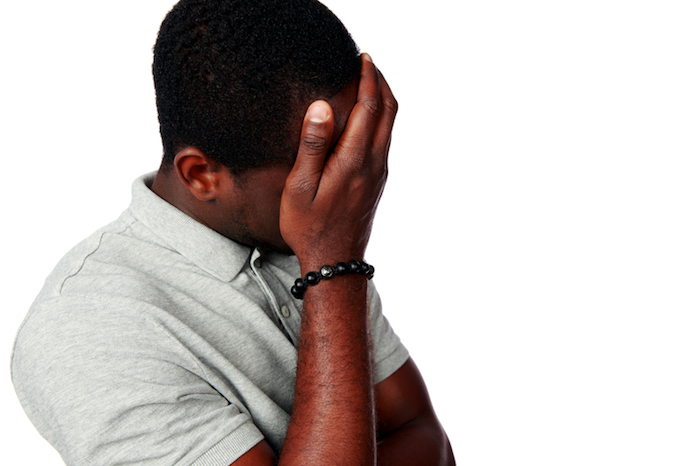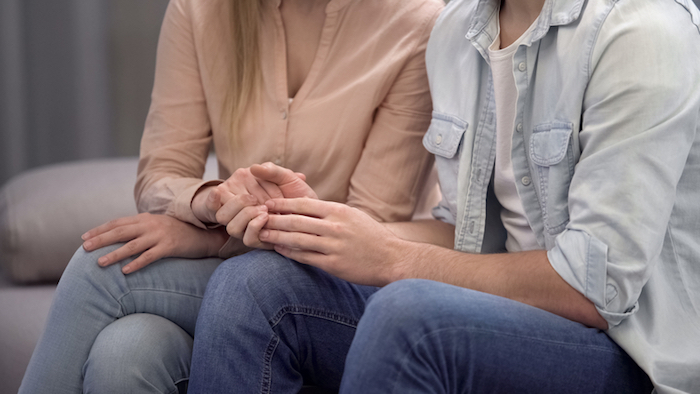- Calls to this hotline are currently being directed to Within Health, Fay or Eating Disorder Solutions
- Representatives are standing by 24/7 to help answer your questions
- All calls are confidential and HIPAA compliant
- There is no obligation or cost to call
- Eating Disorder Hope does not receive any commissions or fees dependent upon which provider you select
- Additional treatment providers are located on our directory or samhsa.gov
Help, My Boyfriend Has an Eating Disorder
Being in a relationship with someone with an eating disorder comes with its own unique challenges. This post will cover some tips that can help you spot the signs of an eating disorder and how to support your boyfriend through eating disorder recovery.
Does My Boyfriend Have an Eating Disorder?
It can be difficult to spot eating disorder behaviors, especially since there’s so many different kinds of disordered behaviors. This section will break down warning signs for the three most common eating disorders: binge eating disorder (BED), bulimia, and anorexia.
The warning signs for BED are:
- Finding food wrappers or missing food
- Eating alone due to feeling embarrassed about the amount of food
- Eating rapidly
- Feeling out of control while eating
- Eating large amounts of food in a short amount of time
- Feeling disgusted, ashamed, or guilty after binging
People with bulimia also struggle with binge eating. However, people with bulimia struggle with cycles of binging and purging. Purging is an umbrella term for several different things that someone may use to avoid gaining weight after binging.
Purging could include vomiting, laxatives, compulsive exercise, or fasting. The signs of binging for people with bulimia are the same as for people with BED. However, other warning signs for bulimia include:
- Going to the bathroom during or quickly after eating
- Exercising even if injured or sick
- Being emotionally upset if unable to exercise
- Noticeable changes in weight
- Cuts and callouses on knuckles, which comes from vomiting
- Dental problems
- Swollen cheeks and neck
- Excessive use of dental products, like mouthwash or mints [1]
Signs of anorexia are:
- Dramatic weight loss
- Intense fear of gaining weight
- Preoccupation with food, diet, or exercise [1]
How to Talk to Your Boyfriend About His Eating Disorder
It can be intimidating to bring up to your boyfriend that you’re concerned about his eating behavior. Here are some tips for how to talk with him about it:
- Avoid Being Judgmental. When talking to your boyfriend about his eating disorder, avoid making comments that could feel judgmental or critical. Stay open and listen to his experience. Judging and criticizing doesn’t ever create change, it just pushes someone away.
- Express Your Concern. It can be tricky to know how to tell your boyfriend you’re worried about his eating disorder that can lessen the chances that he’ll get defensive. One way to do this is to share what you’ve observed and then offer support. For example, “I’ve noticed you’ve seemed really stressed if you can’t get a workout in. Is something going on?”
How to Treat Eating Disorders in Males
While eating disorders are more common in women, boys and men struggle too. While there may be similar things that people with eating disorders have in common, such as a fear of gaining weight or body image issues, each person is going to have their own unique needs during treatment.
One thing that can be beneficial for males in treatment to exploring any social factors that contributed to their eating disorder. For example, some men may have a hard time dealing with their emotions because they were raised to believe that men aren’t allowed to be sad. This may lead them to turn to disordered behaviors as a way to cope.
Another social factor that can contribute to men having eating disorders are the expectations about what male bodies are supposed to look like. This can lead men to obsess about what their body looks like. This can turn into an eating disorder.
Eating disorder treatment professionals can help males in treatment process and work through these things. Treatment also usually includes mental health counseling, nutritional counseling, and medication.
Related Reading
- Helping Someone with an Eating Disorder
- How Do I Know if I Have an Eating Disorder?
- Does My Wife Have an Eating Disorder?
Supporting a Loved One During Recovery
Loved ones can play a big role in the recovery process. The decision to recover is ultimately up to the person who is struggling, but support from others can make a difference.
One of the best things you can do to support your boyfriend during recovery is to ask how he would like to be supported. Sometimes we feel like we should just know how to support our partners. The truth is that we’re not mind readers. Getting clarification can set both you and your boyfriend up for success.
Another way to support your partner during this time is to participate directly in their treatment. Many treatment centers have support groups for loved ones or multi-family group therapy or meals. Going to these events is important and can be very helpful.
Taking the Next Step
Reaching out for help can be intimidating. There are a few ways to go about getting help. However your boyfriend goes about getting treatment, you can offer to support during this time. Be patient with your partner, this is a stressful time.
Citations
[1] National Eating Disorders Association. (n.d). Warning Signs and Symptoms. Retrieved October 29th, 2021 from https://www.nationaleatingdisorders.org/warning-signs-and-symptomsAuthor: Samantha Bothwell, LMFT
Page Last Reviewed and Updated



